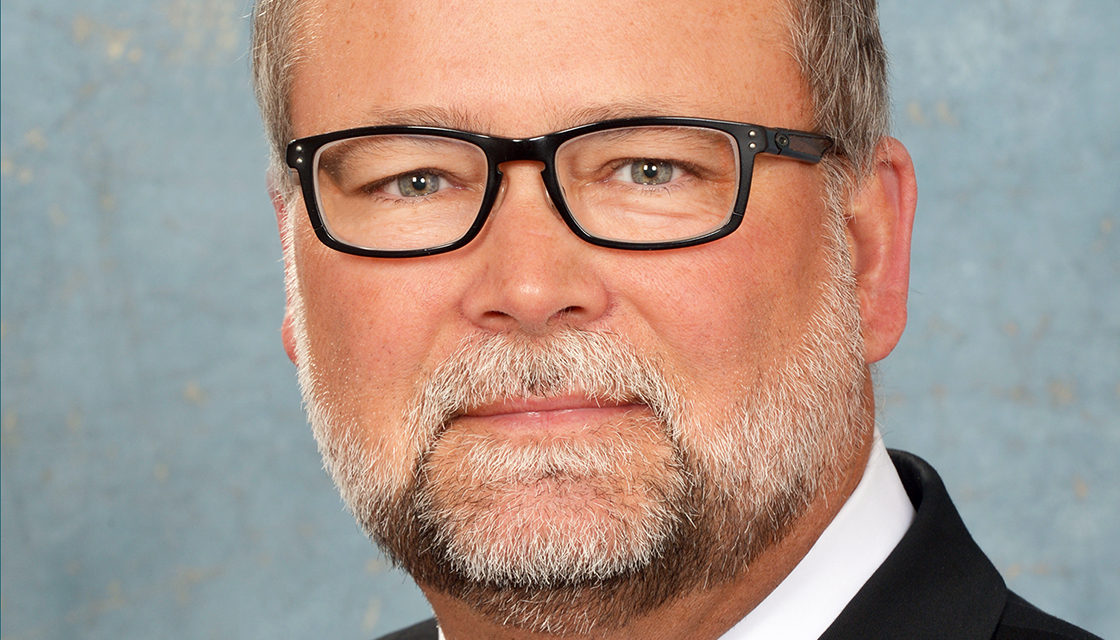Posted on Bridge June 6, 2019
LANSING—Former Senate Leader Arlan Meekhof helped create the law that guides Michigan’s burgeoning medical marijuana industry. Within weeks of leaving office, he was consulting for businesses that wanted a piece of it.
In one pointed email, obtained under the state’s Freedom
of Information Act, Meekhof described actions he took on behalf of three
businesses he worked for that may have violated the law he helped write.
In a Feb. 21 email shared with state officials, Meekhof
said he had spoken to Rick Johnson, chairman of the medical marijuana licensing
board, and that Johnson was going to tell another state official to place the
three businesses on the board’s March agenda. The board was in charge of
deciding whether medical marijuana businesses qualified to operate in the state
under the 2016 law.
Such a conversation, if it took place, could represent a
violation of the 2016 law, which forbids representatives of applicants from
having outside communication with licensing board members. As it happens, it
was Meekhof, in his role as Republican Senate Leader, who recommended Johnson
be appointed to the marijuana board in May 2017.
The behind-the-scenes communications raise questions about
Meekhof’s handling of marijuana legislation while he was in office (he left the
Senate because of term limits at the end of 2018) and Michigan’s lax ethics
laws. Michigan has been rated last among U.S. states for government
transparency and departing lawmakers have faced criticism for the ease with
which they’re allowed to exit office and then represent individuals or
businesses they once helped regulate.
Contacted about his email, Meekhof said he didn’t recall
speaking to Johnson about getting applicants on a specific meeting’s agenda.
Johnson, as well, denied having spoken with Meekhof about specific applicants
for licenses.
But the email certainly gained the attention of state
attorneys.
Meekhof sent the email to Aaron Geyer, an attorney for the
three marijuana companies, and copied several state employees. In it, Meekhof
wrote that he spoke to Johnson and Johnson “will communicate with Andrew
Brisbow [sic] to place Power Play Sports, Lapeer Infused, and Chesaning Elite
(Meekhof’s clients) on the board’s agenda for 3-21-19.” “Brisbow” is a
reference to Andrew Brisbo, then-director of the state’s medical marijuana
regulation bureau.
The 2016 marijuana law banned members of the licensing
board and representatives of applicants for licenses from having outside,
nonofficial communications. If the board chair received a so-called “ex-parte
communication,” he was to report it to the governor’s office for “appropriate
action,” the law said.
“I am extremely concerned about accusations of bias in the
licensing process, especially considering the logjam of applicants that have
been waiting their opportunity,” Thompson said.
Meekhof said in the interview he disagreed with the idea
that people should be concerned he’s done consulting work on behalf of medical
marijuana businesses seeking licenses under a system he, as a lawmaker,
assisted in establishing.
“Helping people through the morass of government is what
we do,” Meekhof said of the political consulting office he opened in
January. “That’s pretty normal course of business.”
‘Let Us Know’
Eventually, a state employee included in Meekhof’s email
forwarded the message to Joshua Booth, an assistant attorney general. Booth
then sent Meekhof’s email to Brisbo.
“Below is the email exchange we discussed,” Booth said in
a Feb. 25 email to Brisbo. “Let us know if there is anything you would like for
us to do.”
Dan Olsen, a spokesperson for the attorney general’s
office, said Booth was simply “calling attention to the communication.”
Brisbo then forwarded the Meekhof email to Adam Sandoval,
deputy director of the Department of Licensing and Regulatory Affairs, the
department that housed the medical marijuana licensing board. Brisbo’s email to
Sandoval listed the portion of state law that bans outside communications by
board members with applicants. Brisbo and Sandoval scheduled a phone call on
the matter. That was also on Monday, Feb. 25.
A few days after Sandoval and Brisbo’s scheduled call,
Gov. Gretchen Whitmer issued an order on March 1 that did away with the
licensing board altogether and announced that a new state agency would take
over licensing responsibilities.
Robert Leddy, a spokesperson for Whitmer’s office, didn’t
respond directly to a question on whether Whitmer was aware of Meekhof’s email
when she announced she planned to get rid of the licensing board.
“Gov. Whitmer decided to establish the Marijuana
Regulatory Agency within LARA to implement a fair and effective regulatory
structure after voters embraced legalization in the last election,” Leddy said
in a statement.
The Applicants
The three applicants Meekhof worked on behalf of were
Chesaning Elite, Lapeer Infused and Power Play Sports 2. Two of the three were
seeking licenses to be dispensaries. One, Lapeer Infused, was seeking
pre-qualification, the first step in the licensing process.
According to state business filings, Joseph Aiello is
president of all of three. Attorneys from the Warren-based firm Aiello &
Associates had been representing the three applicants, according to emails.
The Michigan Campaign Finance Network (MCFN) repeatedly
reached out to Aiello & Associates for comment. Eventually, a person who
described himself as an attorney called from the law firm’s office number and
said Meekhof was hired to help the applicants get on the licensing board’s
agenda for the March 2019 meeting.
But when contacted by the Michigan Campaign Finance
Network two days later to confirm other details regarding Meekhof, the attorney
responded in an email, “Sorry, I’ve never met you, have no idea who you are and
cannot help you.” Additional follow-up questions were not answered.
The now-defunct licensing board originally rejected Power
Play Sports 2, Lapeer Infused and Chesaning Elite in September 2018 because of
concerns over their applications. The three took their case before an
administrative law judge who recommended they receive licenses. It was
following that recommendation that Meekhof sent his email about getting the
companies on the March 2019 agenda.
When asked about his work for the companies, Meekhof said
he wasn’t supposed to help get the businesses on the agenda for a particular
meeting but was consulting for them to help guide them through the process.
“They followed the law. They went before the administrative
law judge. And the administrative law judge deemed them worthy. And they were
sent back to the marijuana board,” Meekhof said.
While the companies didn’t get on the March 2019 agenda,
they did get on the board’s April 2019 agenda. Two of the applicants
— Power Play Sports 2 and Lapeer Infused — were approved. One,
Chesaning Elite, was tabled because it was involved in a sale.
Lansing’s revolving door
Asked how many medical marijuana businesses he has
consulted for, Meekhof said he has in the past and probably will in the future.
“I do some consulting work for people in that space,” he
said.
Meekhof has his own consulting firm called ARM Consulting
Services. According to state business records, it formed on Jan. 14, 2019 — two
weeks after he left office because of term limits.
While he was in office, Meekhof was involved in
marijuana-related policymaking. In 2018, as a ballot proposal campaign pursued
legalizing recreational marijuana in Michigan, Meekhof pushed other lawmakers
to adopt the proposal and to amend the proposal to make the state’s law on
recreational marijuana more similar to the state’s law on medical marijuana.
The state House, which didn’t support the idea, blocked Meekhof.
In 2018’s lame duck session — the period from the
November election until the end of the term — Meekhof also proposed
banning home-grows of recreational marijuana, which were allowed under the
ballot proposal that was approved by voters in November 2018.
Without homegrows, more revenue would flow through brick-and-mortar businesses. His bill,
which would have required super majorities to pass, didn’t gain the support of
the Senate or the House.
In a May 2018 email to Johnson, Brisbo listed Meekhof’s
Senate office as being among those that had complained about the board’s
slow pace of approving medical marijuana license applications.
“As I’m sure you and the other board members are aware, we
do hear many concerns about the pace of the process, including from Sen.
Meekhoff’s office,” Brisbo wrote.
Multiple individuals, including Thompson, the marijuana
activist, who’ve watched the debate over marijuana policies unfold in Lansing
for years said they weren’t surprised Meekhof had become a consultant whose
clients have included those with interests in medical marijuana.
“We’ve seen a trend in Lansing of lawmakers working on the
marijuana issue and then turning right around and going to work for the
industry,” Thompson said.
In May, the market research firm Brightfield Group
projected that recreational marijuana market in Michigan would hit $650 million
by 2023, according to a report by The Detroit News.
Read The Rest Of the Story Here
June 6, 2019 Craig Mauger – https://www.bridgemi.com









